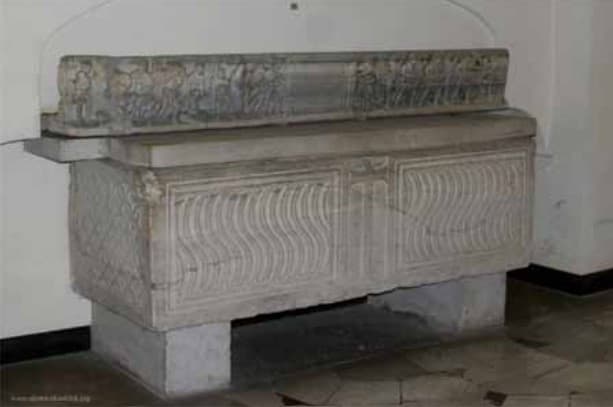ROME – The late Cardinal Francis George of Chicago, who was something of an adept in ecclesiastical history and tradition, was fond of saying that “in the Catholic Church, everything has happened at least once.”
That phrase comes to mind this week, as we witness what many are styling as an absolute first: One Pope leading the funeral Mass of another, in this case Pope Francis burying his predecessor Benedict XVI.
But is it really “unprecedented”? Well, as with so many things, it depends on how you look at it.
Here’s the closest precedent: Back in 1798, Pope Pius VI was taken prisoner by the armies of Napoleon which had occupied Rome two years earlier. After stops in Siena, Florence, Parma, Piacenza and Turin, the pope eventually was taken to France and died in exile in Valence in August 1799.
(As an historical footnote, Pius VI to this day remains the last pope to die outside Italy.)
By way of contrast with Benedict XVI, Pius VI’s papacy came to an end not because he resigned but because, in a sense, he stayed the course – Napoleon had insisted that Pius VI renounce his temporal power, which he refused to do, triggering his imprisonment.
After a six-month spat between the French and the papal entourage over what to do with his remains, the late pope was eventually buried in a civil cemetery in Valence without any funeral ceremony. In a final humiliation, a marker on the gravesite read “Citizen Giannangelo Braschi,” the pontiff’s given name, followed by “aka Pope.”
Almost two years later, on Christmas Eve 1801, French authorities finally allowed Pius VI’s remains to be disinterred and returned to the Vatican. After a series of stops in Italy to allow faithful to pay their respects, they eventually arrived in Rome. Pius VI was given a solemn Catholic funeral on February 19, 1802, in St. Peter’s Basilica, in the presence of his successor, Pope Pius VII.
Thus, tomorrow will not be the first time that a sitting pope has taken part in the funeral Mass of another.
(In a further footnote, Pope Pius XII had the remains of Pius VI moved to the crypt below St. Peter’s Basilica and placed in an ancient Roman sarcophagus, with an inscription reading: “The mortal remains of Pius VI, consumed in unjust exile, by order of Pius XII were placed fittingly here and decorated by a marble ornament most excellent for its art and history in 1949.”
Historians note, however, that Pope Pius VII did not actually “celebrate” the funeral Mass for Pius VI, an honor which fell instead to Cardinal Leonardo Antonelli, who had been the first cardinal created by Pius VI in 1775. Accounts at the time say Pius VII was physically present and “assisted” during the Mass.
If so, that would mark a significant difference with tomorrow’s funeral, where the Vatican has said Pope Francis will lead the ceremony himself, right?
Well, yes and no.
Bear in mind that during several public Masses recently, including the Christmas Eve liturgy on Dec. 24 and the Mass for Mary the Mother of God on New Year’s Day, Pope Francis, in Vatican argot, “presided” but did not actually “celebrate” the Mass. Francis was present and delivered his homily, but the main celebrant at the altar on Christmas Eve was Cardinal Giovani Battista Re, Dean of the College of Cardinals, while on New Year’s it was Cardinal Pietro Parolin, the Vatican’s Secretary of State.
As the cardinals actually celebrated the Liturgy of the Eucharist, Pope Francis sat off to the side, doubtless a result of the nagging pain that continues to afflict the pontiff due to osteoarthritis in his right knee.
In other words, one could say that Francis “assisted” at a Mass actually “celebrated” by a cardinal. That was the case for the funeral too, which was celebrated by Re, bringing the liturgy closer to the 1802 precedent.
Of course, there is another towering difference: Pope Francis led the funeral Mass of his predecessor not because of an invading army or a palace coup, but rather because of a peaceful transition of power triggered by his predecessor’s free decision to resign.
In that sense, therefore, tomorrow’s funeral Mass indeed will be a first, and let’s pause to absorb the significance of that.
After all, when you’re talking about an institution with more than 2,000 years of history that’s stood at the crossroads of every great global drama during that span, “unprecedented” just isn’t a word you get to use very often.













